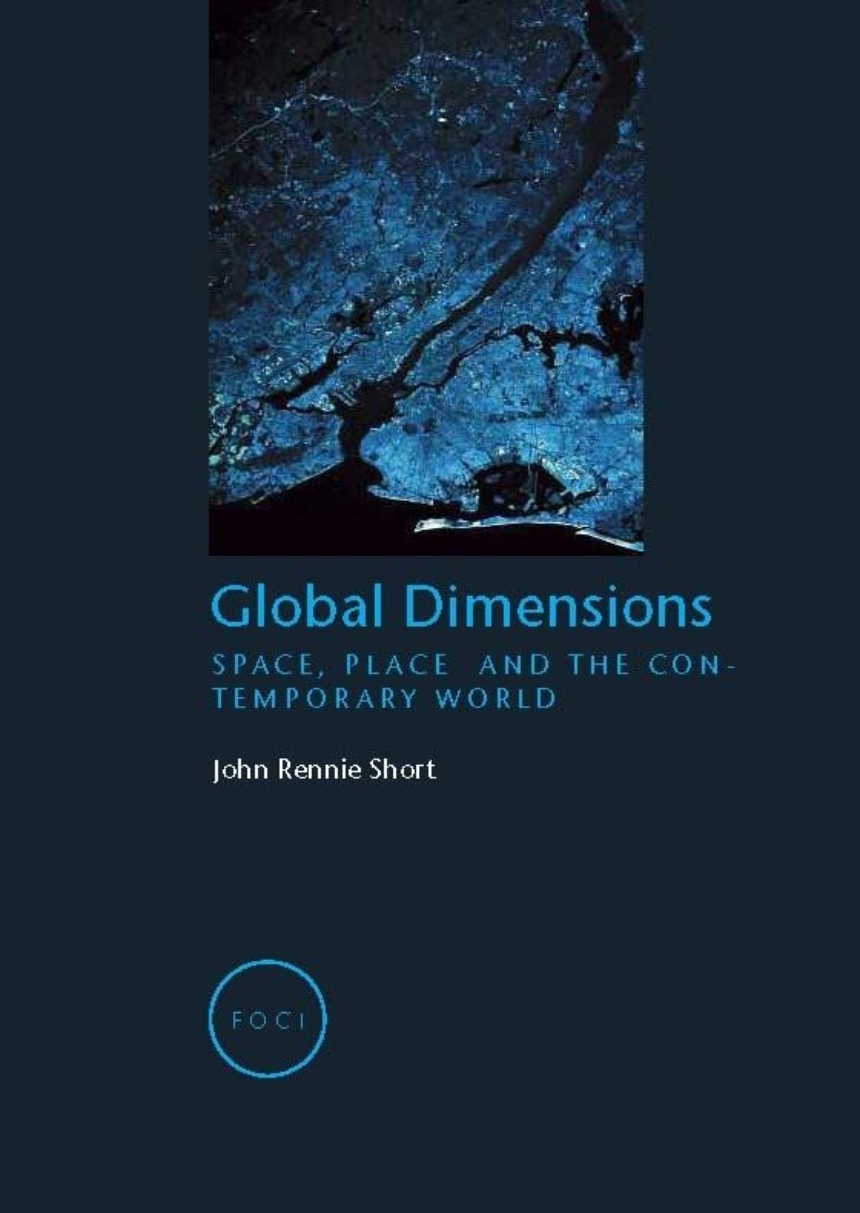Globalization is one of today’s most powerful and pervasive ideas – for some a welcome dream, for others a nightmare. The term is used in the popular press as a sort of shorthand for the notion that all parts of the world are becoming more alike. It is also used as a marketing concept to sell goods, commodities and services. "Going global" has become the mantra for a whole range of companies, business gurus and institutions.
John Rennie Short disagrees with this interpretation, arguing that the world today actually thrives on local differences and that a global polity tends to reinforce – not repress – the power of individual nation-states. He insists that globalization is not so much replacing difference with sameness as providing opportunities for new interactions between spaces and locations, new connections between the global and the local, new social landscapes and more diversity rather than less.
John Rennie Short disagrees with this interpretation, arguing that the world today actually thrives on local differences and that a global polity tends to reinforce – not repress – the power of individual nation-states. He insists that globalization is not so much replacing difference with sameness as providing opportunities for new interactions between spaces and locations, new connections between the global and the local, new social landscapes and more diversity rather than less.
Distribution by the University of Chicago Press only to customers in the USA and Canada. Customers elsewhere should visit the UK website of Reaktion Books.
192 pages | 5.75 x 8.25 | © 2001
Focus on Contemporary Issues (FOCI)
Economics and Business: Economics--International and Comparative
Table of Contents
1. The Dialectics of Globalization
2. What Time is this Place?
3. Does a Global Polity Mean the End of the Nation-State?
4. A Global Economy?
5. Global Cultures
6. Border Spaces
7. The Annihilation of Space, the Tyranny of Time
8. Democratizing Globalization
References
Select Bibliography
Acknowledgements
List of Illustrations
2. What Time is this Place?
3. Does a Global Polity Mean the End of the Nation-State?
4. A Global Economy?
5. Global Cultures
6. Border Spaces
7. The Annihilation of Space, the Tyranny of Time
8. Democratizing Globalization
References
Select Bibliography
Acknowledgements
List of Illustrations

